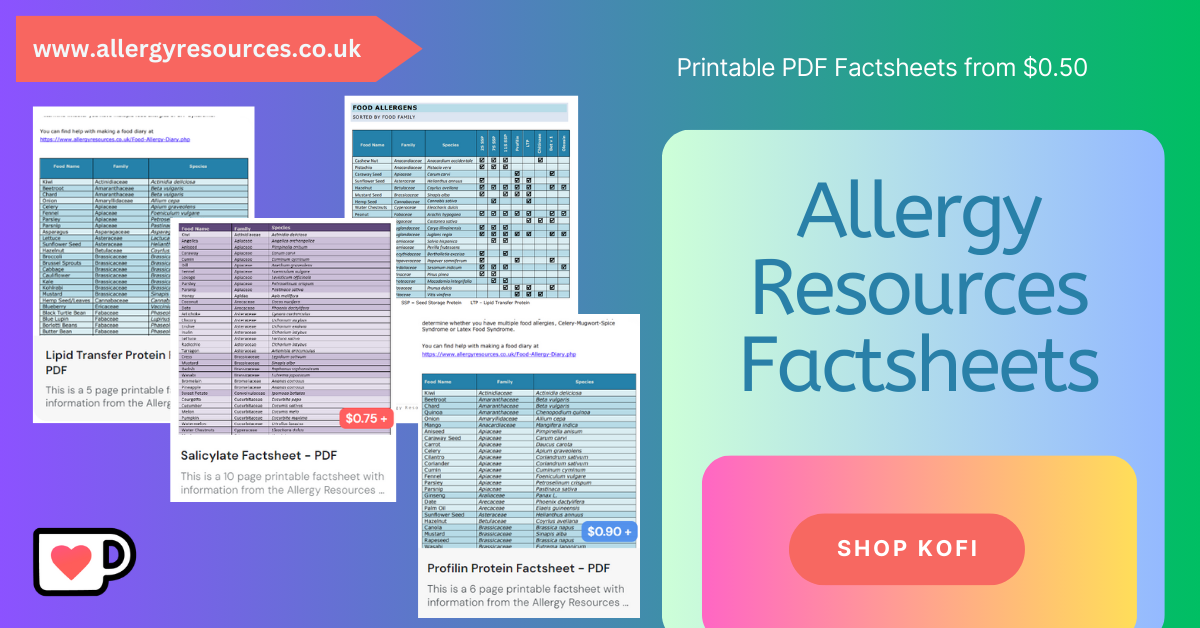
PINE NUT ALLERGY
Key Allergens
The stone pine has an identified 2S seed storage proteins. These are panallergens commonly associated with tree nuts, peanuts, legumes and seeds.
Korean pine nuts are similar in appearance, but are from a different species of pine tree. They contain a 7S seed storage proteins. These are also associated with nuts, legumes and seed allergies.
Opinion is split about whether pine nuts are tree nuts, but they are technically seeds and cross reactivity between tree nuts and pine nuts are uncommon. Pine nuts are OK for some nut allergy sufferers.
Food Intolerances



Pine Nuts are a low FODMAP food. FODMAP stands for Fermentable oligosaccharides, disaccharides, monosaccharides and polyols. Foods high in FODMAPs can cause symptoms of food intolerance, affecting the gastro intestinal system and this can be mistaken for a true IgE food allergy.
Pine Nuts are a food high in salicylates. Salicylates have the potential to cause worsening of asthma, swelling, itching and hives as well as food intolerance symptoms in people who are sensitive to salicylates.
Pine Nuts are low in lectins>, these are another cause of food intolerance, because of their taste and texture they are a good replacement for peope who suffer from food intolerance to lectins.
You can read more about Food Intolerances on the dedicated Food Intolerance Page.
Associated Syndromes
Cross Reactivity
There is a lot of crossover between 2S and 7S seed storage proteins, foods which contain 7S proteins not named above include lupin, chia seeds, coconut, lentils, macadamia nuts, mung beans, palm oil and peas.
Note these food lists are not exhaustive, the most up to date information is on the Cross Reactivity Tool.
Resources
Websites
Allergen Encyclopedia - Pine Nut
Anaphylaxis Campaign - Pine Nuts
Food Allergy Canada - Tree Nuts
Allergy Insight - Pine Nut Allergy
ATP Science - Salicylate Foods
Articles and Journals
Prevalence of tree nut allergy in Europe: A systematic review and meta-analysis, 2024
A Case Report of Acute Food Protein-Induced Enterocolitis Syndrome to Walnut, 2023
Pinus halepensis (Aleppo pine) nuts induced anaphylaxis: a case series, 2023
Epitope mapping of the major allergen 2S albumin from pine nut, 2021
Nut Allergy: Clinical and Allergological Features in Italian Children, 2021
Current perspectives on tree nut allergy: a review, 2018
Identification, characterization, and initial epitope mapping of pine nut allergen Pin k 2, 2016
Allergic Reactions to Pine Nut: A Review, 2015
Pine nut allergy: Clinical features and major allergens characterization, 2012
Allergy to pine nuts in children, 1998